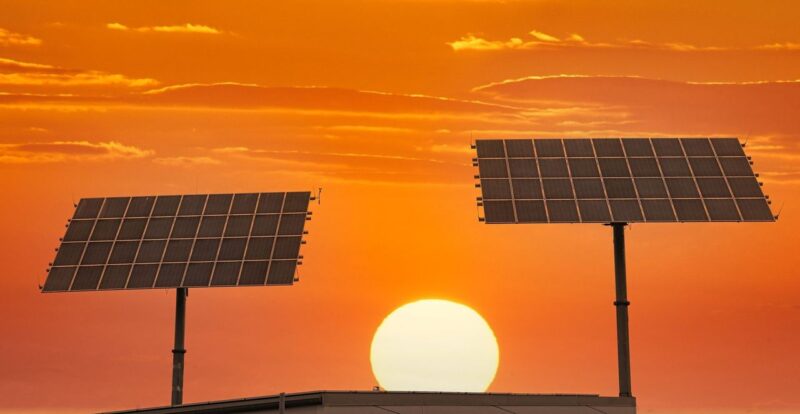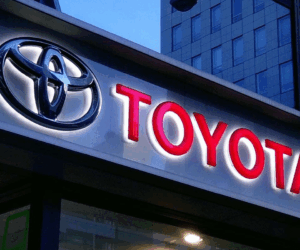Kenyan climate-tech startup SunCulture has secured $5 million in funding from WaterEquity to scale its solar-powered irrigation systems for smallholder farmers across Sub-Saharan Africa. The investment marks the first deal under WaterEquity’s new Water & Climate Resilience Fund, designed to support innovative solutions that tackle water scarcity and climate shocks in emerging markets.
The round represents a milestone not only for SunCulture but also for the wider sector of climate-smart agriculture in Africa, where smallholder farmers face mounting challenges from erratic rainfall, rising temperatures, and unreliable energy access.
Commenting on the round, Samir Ibrahim, co-founder and CEO of SunCulture, said, “This investment will enable us to provide life-changing solutions to thousands of farmers while also contributing to climate resilience in Africa. Access to reliable irrigation can mean the difference between subsistence farming and building a sustainable livelihood.”
Across Africa, more than 33 million smallholder farmers depend on rain-fed agriculture. For many, the lack of affordable irrigation remains a major barrier to improving yields and securing stable incomes. Conventional irrigation technologies are often prohibitively expensive or rely on diesel pumps, which are both costly and environmentally harmful.
SunCulture has pioneered a solution that combines solar-powered irrigation systems with an inclusive business model. Farmers acquire the systems through a “pay-as-you-grow” financing scheme, which allows them to make gradual repayments using increased earnings from improved harvests.

Since its founding in 2013 by Ibrahim and Charlie Nichols, SunCulture has become a leading name in the climate-tech sector. The company’s solar water pumps not only irrigate crops but also supply households with clean water for drinking, cooking, and cleaning. To date, over 45,000 farmers have adopted SunCulture’s systems, reporting transformative benefits such as year-round food production, reduced manual labour, and greater resilience against climate variability.
SunCulture is scaling across sub-Saharan Africa
With WaterEquity’s backing, SunCulture plans to expand its footprint beyond Kenya into new markets, including Uganda, Ethiopia, Ivory Coast, Zambia, and Togo. The funding will also support scaling up manufacturing and distribution capacity, ensuring faster delivery and stronger after-sales support for farmers.
A key priority for SunCulture is to refine and expand its financing models to reach more low-income communities, particularly those most vulnerable to climate impacts. By lowering the entry barrier, the company hopes to unlock irrigation access for millions who are currently excluded from conventional systems.
For WaterEquity, the investment underscores its confidence in the intersection of water access, agriculture, and climate adaptation.
The organisation, co-founded by actor and activist Matt Damon and water expert Gary White, specialises in mobilising private capital to deliver safe water and sanitation solutions in underserved regions. Its new Water & Climate Resilience Fund aims to back scalable technologies that build resilience to water and climate-related risks.
The impact of solar irrigation stretches far beyond improved harvests. By enabling farmers to irrigate during dry spells, the technology extends growing seasons, stabilises food supply, and reduces dependency on increasingly unpredictable rainfall.


Crucially, replacing diesel pumps with solar alternatives also cuts greenhouse gas emissions, offering both climate adaptation and mitigation benefits. This dual impact has made solar irrigation especially attractive to impact investors seeking scalable, sustainable solutions.
The timing of SunCulture’s expansion is significant. Sub-Saharan Africa is one of the regions most vulnerable to climate change, with frequent droughts, floods, and shifting weather patterns threatening food security for millions. According to the UN Food and Agriculture Organisation (FAO), irrigation could increase African agricultural output by up to 50%, yet currently less than 6% of cultivated land in the region is irrigated.
By scaling affordable solar irrigation, SunCulture is positioning itself at the heart of Africa’s efforts to adapt to climate shocks while boosting agricultural productivity.
This deal reflects a broader trend: African climate-tech startups are beginning to scale beyond pilot projects. For years, many operated at a limited scope due to lack of investment. Now, growing confidence from venture capital and impact investors is enabling startups like SunCulture to cross borders and attract larger rounds of funding.


The success of SunCulture also highlights the role of innovative financing models in unlocking technology for smallholder farmers, who often cannot afford upfront costs but stand to benefit the most from modern irrigation solutions.
As climate pressures intensify, scalable technologies like solar irrigation could prove crucial in transforming African agriculture. For SunCulture, the $5 million investment is more than capital; it is an opportunity to redefine farming resilience for thousands of households.
“Our vision has always been to empower farmers with the tools they need to thrive in the face of climate change,” said Ibrahim. “With WaterEquity’s support, we are one step closer to making that vision a reality across Africa.”








